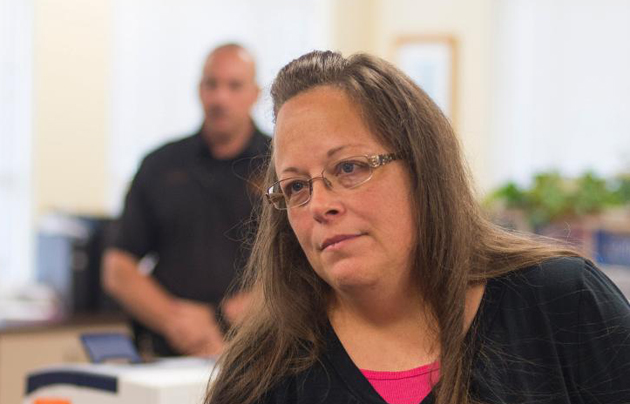One of the principles of Christianity is that the law must be obeyed, although we will see that there are a number of exceptions to this rule.
 Kim Davis. / Slate
Kim Davis. / Slate
A few people have asked me for my opinion on Kim Davis' imprisonment, the civil servant who refuses to issue marriage licenses to same-sex couples in the USA.
So, here it is:
1. The law of the country must be upheld, and the service must be guaranteed, to ensure legal certainty, which is a central tenet for the rule of law.
We are talking about a democratic nation, so its laws -which can be more or less fair, and that depends on each person's view of the world- are issued according to the majorities reached in a parliament, therefore these laws follow the will of the majority.
One of the principles of Christianity is that the law must be obeyed, although we will see later that there are a number of exceptions to this rule.
2. At the same time, I believe there is a right to conscientious objection.
For this right to exist, there must be a real conscience issue, which must be objectively identifiable in a person's beliefs -in this case, Davis claims her refusal is due to certain religious beliefs, and it is possible to verify that an important percentage of Christians believe that marriage should be between a man and a woman.
Christians must follow the law, unless a law is openly against what they understand is God's command. This refusal to obey a law can't be opportunistic. This means that it can't appear out of nowhere, to deny someone a service, but must be consistent with this person's beliefs over time.
An example of opportunistic conscientious objection would be a case of conscientious objection -to serve in conscripted military service- coming from a person who previously hadn't had problems using weapons, or hadn't had known pacifist beliefs, but to avoid serving claimed to be an objector. In such a case, it would seem obvious that this person had not been coherent over time.
3. It can't be claimed that this civil servant has done anything against the law, precisely because, for the conscientious objection right to exist, there must be a compulsory duty -for example military conscription- which is against someone's conscience.
In a high percentage of cases, objection is against the law, but even in those cases there is a right that must be guaranteed, that is, the right of people to keep a clean conscience and not be forced to do something against it.
4. This civil servant would be incapacitated to carry on her duties if a great share of said duties had to do with actions troubling her conscience.
If her main duty is to issue marriage licenses, she is going to have this problem constantly, therefore she should be transferred to a different department not related to these duties, since the service must be guaranteed by the government.
5. Jailing a person because of their conscience shows that democratic nations are losing the foundation from which they originated and sustains them, which is a set of values laid down on a Declaration of Fundamental Rights like freedom of conscience and freedom of expression, among others.
Obviously, the health of these rights is not measured by how they are respected for those who hold mainstream convictions, which is the norm in democracies, but by how they are respected for those whose convictions are not mainstream.
Jaume Llenas is a jurist and serves as the Secretary General of the Spanish Evangelical Alliance.

Las opiniones vertidas por nuestros colaboradores se realizan a nivel personal, pudiendo coincidir o no con la postura de la dirección de Protestante Digital.
Si quieres comentar o